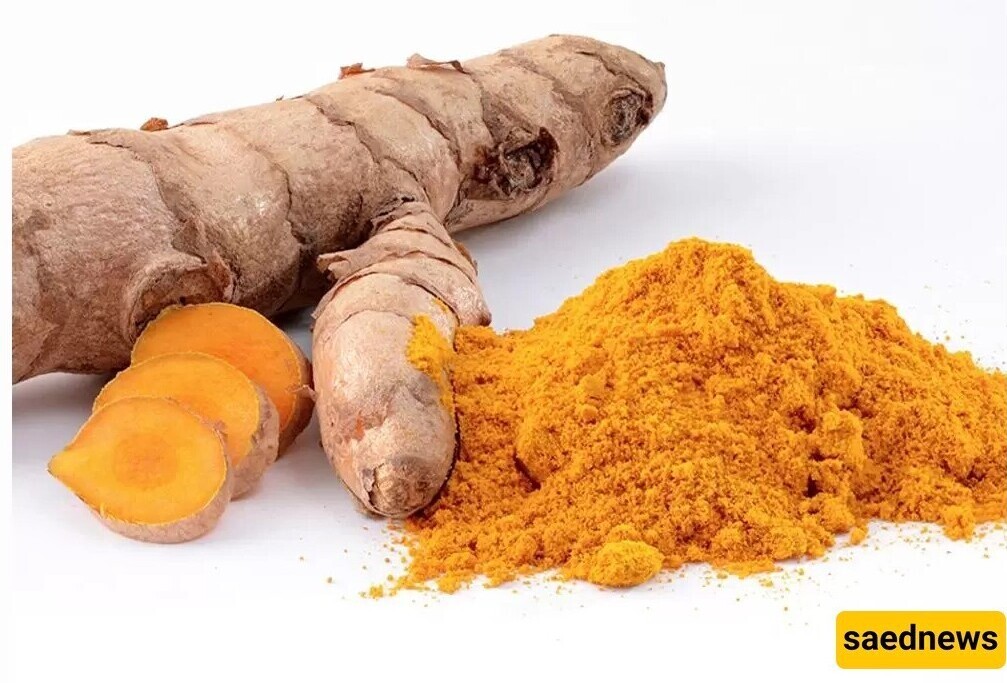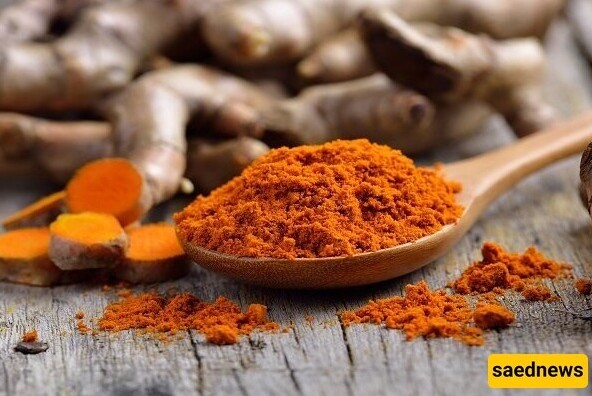SAEDNEWS: The yellow powder of turmeric, which is commonly used in various Iranian, Indian, and other Asian cuisines, plays a very important role in preventing cancer. Stay with us in this article to learn more about turmeric's anti-cancer properties.

According to SAEDNEWS, The most important property of turmeric is its anticancer effect. Curcumin is the yellow pigment found in turmeric, and numerous studies conducted over the past few years have shown that curcumin has significant anticancer effects by inhibiting cell proliferation and metastasis, as well as inducing cell death, preventing the onset of certain cancers. Curcumin has protective effects against cancer development. This compound stops the cell cycle and prevents the proliferation of cancer cells, thus inhibiting their growth and multiplication.
Curcumin has significant inhibitory effects on breast cancer cells, which is the most common type of cancer among women worldwide. Additionally, curcumin prevents the proliferation of breast cancer stem cells (BCSC), thereby preventing the recurrence of breast cancer. This substance suppresses the proliferation of BCSC cells, inhibits metastasis, and ultimately prevents tumor formation. The ability of curcumin to prevent cancer cell proliferation can be attributed to its ability to regulate protein kinases, control the cell cycle, and influence transcription factors.

In addition, curcumin affects telomerase activity. Curcumin inhibits telomerase activity in human leukemia cells and brain tumor cells, preventing their growth. Laboratory and animal studies have shown that curcumin may prevent cancer, slow its spread, enhance the effectiveness of chemotherapy, and protect healthy cells from the damage caused by radiation therapy.
Curcumin exhibits various therapeutic effects, including anti-inflammatory, chemopreventive, suppressive, and anti-metastatic properties. Research on the signaling pathways targeted by curcumin has shown that this compound plays a critical role in key processes such as cell invasion and cell death.
Therefore, curcumin is considered a promising drug for cancer prevention and treatment. However, the use of curcumin as a potent anticancer treatment has limitations due to its low solubility in water and poor absorption. The most effective solvent for curcumin is DMSO, which is a toxic solution.

Breast Cancer
Colorectal Cancer
Stomach Cancer
Skin Cancer Cells
Turmeric used in cooking does not cause any problems. However, it is unclear whether the medical use of curcumin is entirely safe. Studies conducted so far suggest that normal consumption of this substance carries few side effects.
However, there is limited information on the side effects of taking it in large amounts for cancer treatment or prevention. Many people have reported stomach pain as a result of consuming turmeric. Additionally, various skin problems have been reported due to excessive consumption of this spice. In this regard, the Medicines and Healthcare products Regulatory Agency (MHRA) has warned that excessive consumption of turmeric may harm the liver and cause symptoms such as:
Jaundice (yellowing of the skin)
Dark urine
Unusual fatigue
Stomach pain or abdominal pain
Loss of appetite
Allergic reactions and sensitivity
Furthermore, turmeric interacts with medications such as blood sugar-lowering drugs, blood thinners, and chemotherapy drugs.

Some studies have shown that the body does not absorb curcumin easily. Researchers are seeking ways to increase its absorption. Also, although curcumin appears to have anticancer properties, several studies indicate that it may interfere with chemotherapy drugs, potentially enhancing their effects and leading to more side effects. This interaction could be problematic for those who wish to use turmeric supplements alongside their standard cancer treatments.

